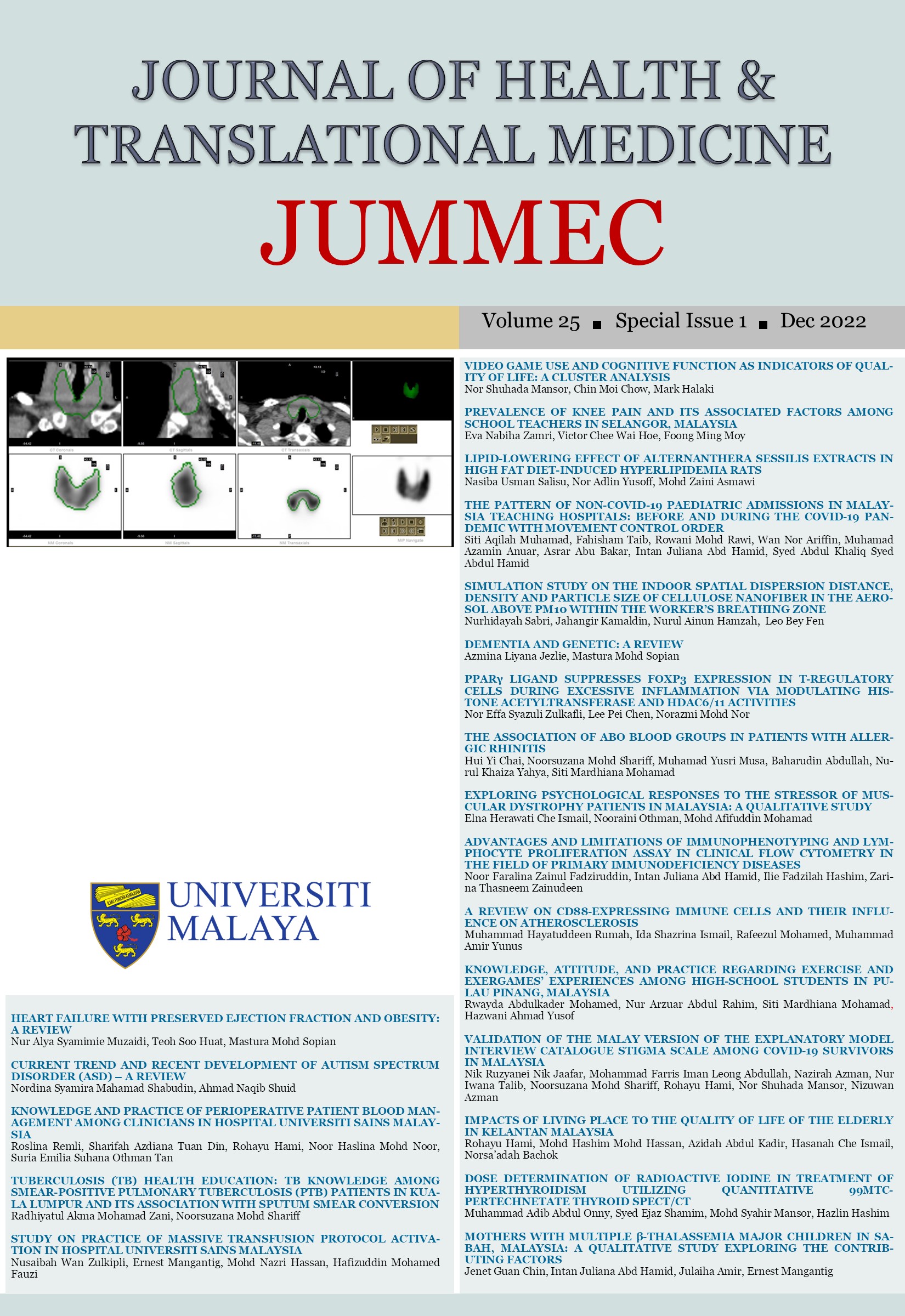STUDY ON PRACTICE OF MASSIVE TRANSFUSION PROTOCOL ACTIVATION IN HOSPITAL UNIVERSITI SAINS MALAYSIA
Received 2022-04-25; Accepted 2022-09-01; Published 2022-12-31
DOI:
https://doi.org/10.22452/jummec.sp2022no1.21Abstract
Massive transfusion protocol (MTP) was designed to improve the outcome of patients at risk of massive haemorrhage. This study focused on the prevalence, indications, factors associated with indication of MTP activation cases and twenty-four-hour mortality among those who received MTP in Hospital Universiti Sains Malaysia (USM). A retrospective cross-sectional study was performed on 110 patients for whom MTP was activated in Hospital USM. Data were extracted from the medical records and blood bank system (MyTransfusi). Descriptive statistics and logistic regression were used for statistical analysis. A total of 273,087 patients were admitted to Hospital USM and 193 patients required MTP activation during the study period. The prevalence of MTP activation was only 0.07%. This study included 110 MTP activation cases which consisted of 62 (56.3%) trauma and 48 (43.7%) non-trauma patients. The overall mean age of patients was 40.0 years old, and majority were male (66.4%). The two most common MTP activation indications were motor vehicle accidents (93.5%) and gastrointestinal bleeding (50%). Female and presence of comorbidity significantly associated with MTP activation indication. Meanwhile, no emergency procedure and non-compliance to activated MTP were significantly associated with high mortality within twenty-four-hour post MTP activation. The prevalence of MTP was low. Our result suggested that early emergency procedures and compliance towards MTP improved patient outcomes.
Downloads
Downloads
Published
Issue
Section
License
All authors agree that the article, if editorially accepted for publication, shall be licensed under the Creative Commons Attribution License 4.0 to allow others to freely access, copy and use research provided the author is correctly attributed, unless otherwise stated. All articles are available online without charge or other barriers to access. However, anyone wishing to reproduce large quantities of an article (250+) should inform the publisher. Any opinion expressed in the articles are those of the authors and do not reflect that of the University of Malaya, 50603 Kuala Lumpur, Malaysia.


